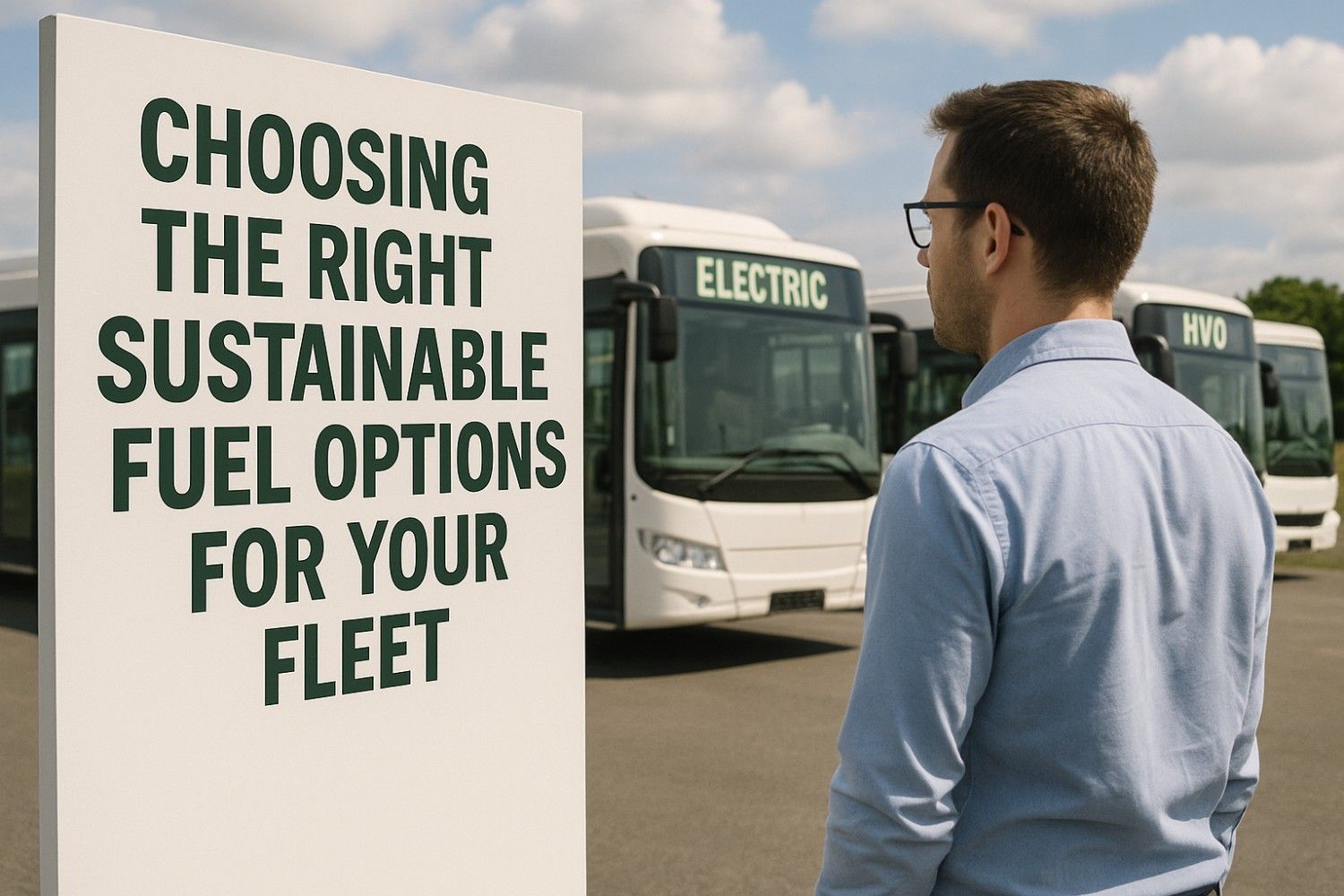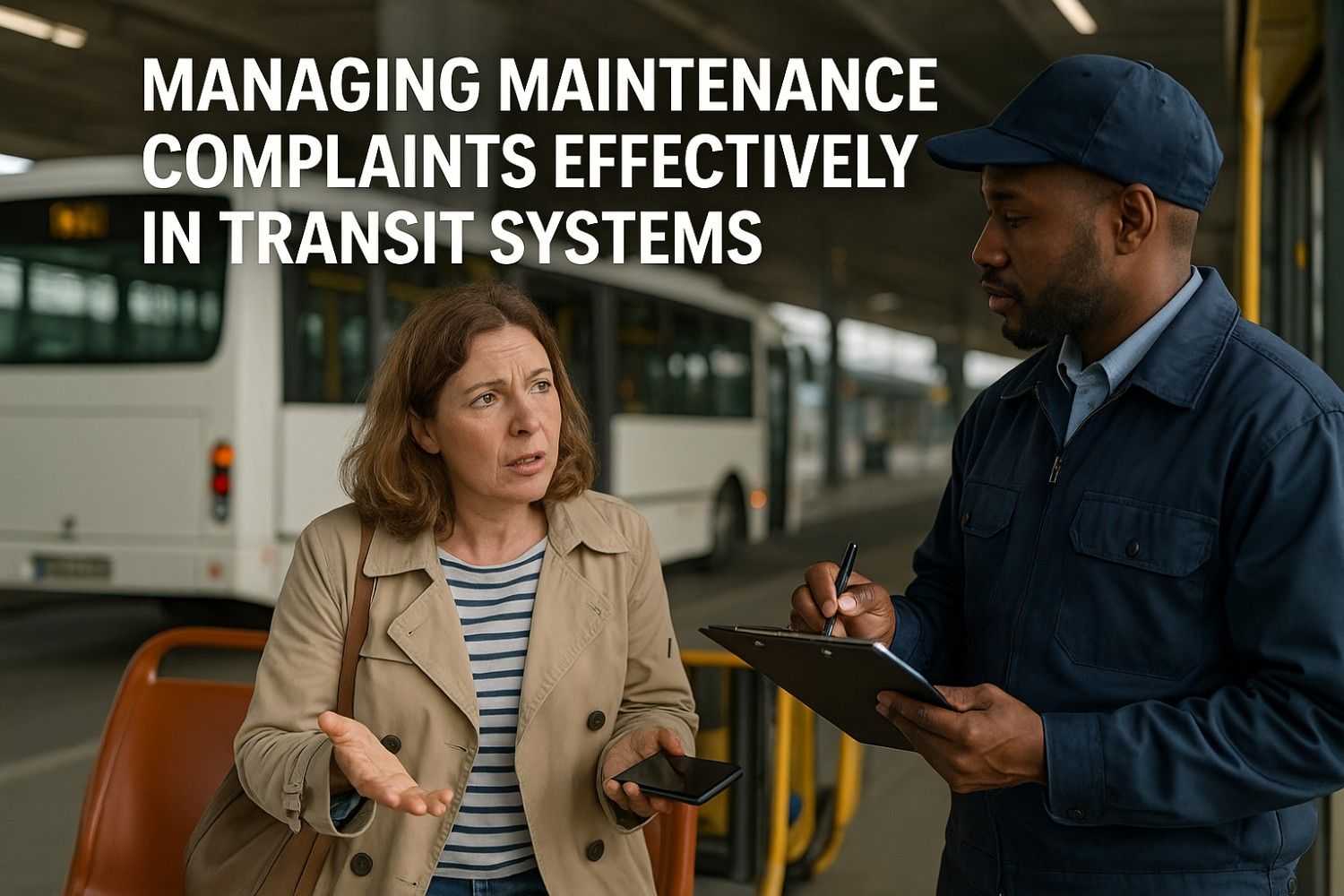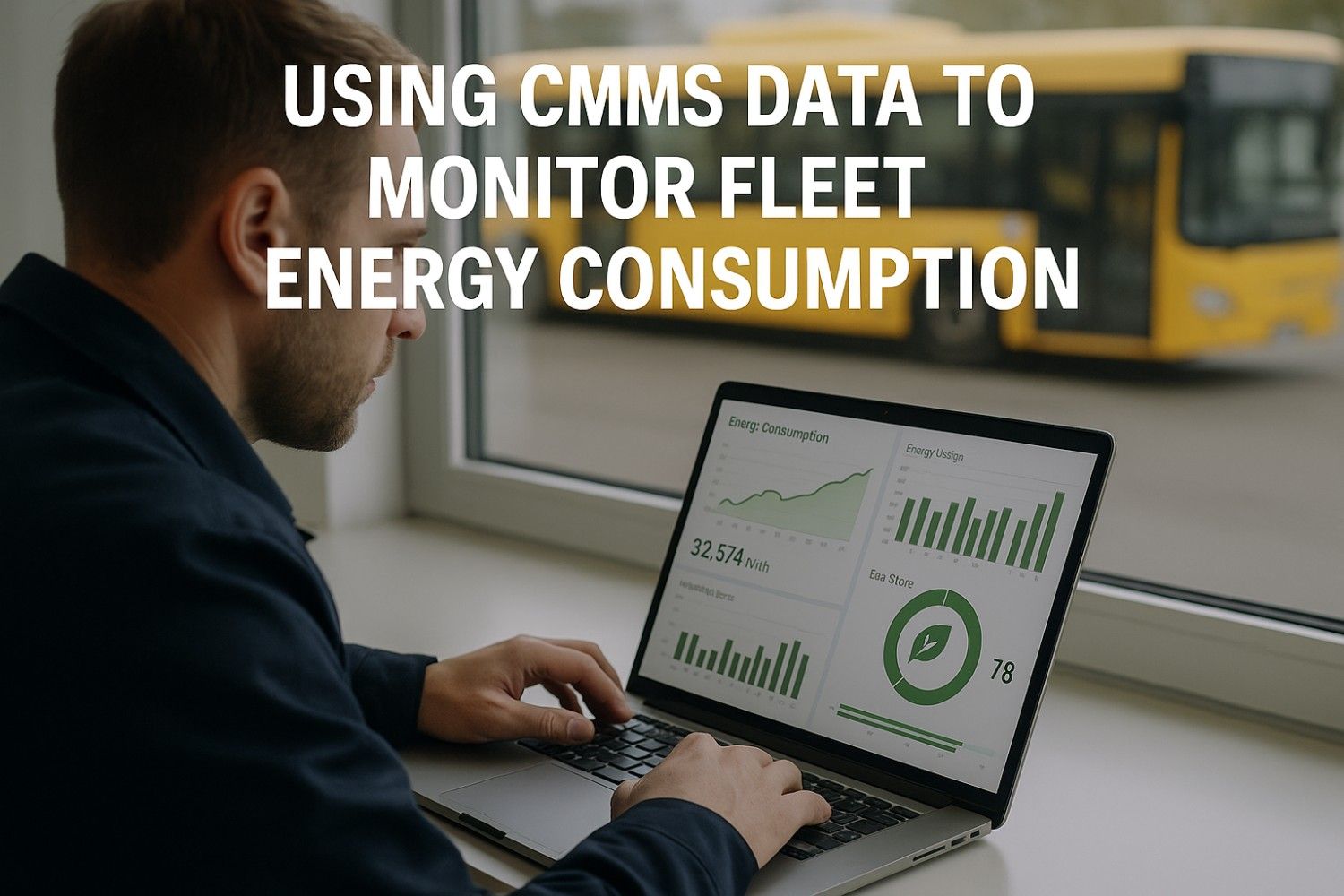The transition to sustainable fuel options represents a critical strategic decision for bus fleet operators balancing environmental responsibility, operational reliability, and financial sustainability. With multiple alternative fuel technologies available—including compressed natural gas (CNG), renewable natural gas (RNG), biodiesel, hydrogen fuel cells, and battery electric vehicles—fleet managers require comprehensive analysis frameworks to select optimal solutions matching their specific operational requirements, infrastructure capabilities, and budget constraints. Modern Bus CMMS platforms provide the data analytics and management tools necessary to evaluate fuel alternatives, plan transitions, and optimize operations across mixed-fuel fleets during adoption periods.
Traditional diesel operations face mounting pressure from environmental regulations, air quality mandates, carbon reduction commitments, and community expectations for cleaner transportation. However, wholesale fleet conversions involve substantial capital investments, infrastructure development requirements, operational workflow changes, and maintenance capability enhancements that must be carefully planned and executed. Hasty transitions without adequate preparation risk service disruptions, cost overruns, and performance disappointments that undermine sustainability initiatives and organizational confidence in alternative fuel technologies.
Fleet operators implementing strategic sustainable fuel transitions supported by Bus CMMS platforms report successful outcomes: 45% reduction in greenhouse gas emissions, 30% improvement in air quality metrics, 25% decrease in fuel cost volatility exposure, and 98% achievement of operational reliability targets during transition periods. These results demonstrate how thoughtful planning, comprehensive data analysis, and systematic implementation approaches deliver environmental benefits while maintaining service quality and financial performance. Start planning your sustainable fuel transition with comprehensive analysis tools that identify optimal pathways for your specific operations.
Ready to Transition to Sustainable Fuels?
Explore how Bus CMMS helps you evaluate, plan, and implement the right sustainable fuel strategy that matches your operational needs and sustainability goals.
Plan Your Fuel TransitionExplore Fuel Options Demo
Compressed Natural Gas (CNG) Fleet Operations
Compressed natural gas represents the most mature alternative fuel technology for bus operations, with proven reliability, established infrastructure networks, and substantial operational experience across diverse climates and duty cycles. CNG buses deliver 20-30% greenhouse gas emission reductions compared to diesel while offering comparable range, performance, and operational flexibility. Bus CMMS platforms optimize CNG fleet management through fuel consumption tracking, maintenance scheduling specific to natural gas powertrains, and infrastructure utilization monitoring that maximizes investment returns.
CNG Operational Considerations
Natural gas powertrains require specialized maintenance procedures including valve adjustments, fuel system inspections, and emissions system servicing that differ substantially from diesel maintenance protocols. Bus CMMS platforms provide technicians with natural gas-specific maintenance procedures, track component lifecycles unique to CNG powertrains, and schedule preventive maintenance based on manufacturer recommendations optimized for natural gas operations. See how CMMS manages CNG-specific maintenance requirements and ensures optimal performance throughout vehicle lifecycles.
Fueling infrastructure investments represent significant capital requirements for CNG adoption, with compression stations, storage capacity, and dispensing equipment requiring careful sizing to match fleet requirements while accommodating future growth. Bus CMMS platforms analyze fueling patterns, track utilization rates, and project capacity requirements supporting infrastructure investment decisions that balance current needs with expansion capabilities.
CNG Fleet Management Features
- Fuel Consumption Analytics: Track natural gas usage by vehicle, route, and driver to optimize efficiency and identify operational improvements
- Range Management: Monitor fuel levels and predict refueling requirements preventing service disruptions from inadequate fueling
- Maintenance Optimization: Schedule CNG-specific services including fuel system inspections, spark plug replacements, and emissions testing
- Infrastructure Monitoring: Track compressor performance, station utilization, and maintenance requirements ensuring fueling reliability
- Cost Analysis: Compare CNG operational costs against diesel baselines quantifying financial benefits and payback periods
Renewable Natural Gas (RNG) Sustainability Benefits
RNG Environmental Impact Advantages
- Carbon Negative Potential: RNG produced from organic waste can achieve net negative carbon emissions when lifecycle analysis includes methane capture
- Waste Diversion: Converts landfill gas, wastewater treatment emissions, and agricultural waste into transportation fuel
- Immediate Compatibility: Works in existing CNG vehicles and infrastructure without modifications or performance compromises
- Regulatory Credits: Qualifies for Low Carbon Fuel Standard credits and Renewable Identification Numbers generating additional revenue
Renewable natural gas offers the environmental benefits of renewable energy while leveraging existing CNG infrastructure investments, creating smooth transition pathways from conventional natural gas to carbon-neutral operations. Bus CMMS platforms track RNG utilization, document environmental benefits for sustainability reporting, and manage renewable fuel credit programs that offset costs and improve project economics. Start tracking your RNG environmental benefits with comprehensive sustainability reporting integrated into your maintenance management system.
Supply availability and pricing for renewable natural gas vary significantly by region, requiring careful evaluation of local sources, contract structures, and long-term availability projections. CMMS analytics support fuel sourcing decisions through cost tracking, supplier performance monitoring, and scenario analysis evaluating economic impacts across different supply arrangements and pricing structures.
Biodiesel and Renewable Diesel Integration
Biodiesel and renewable diesel offer sustainable fuel alternatives compatible with existing diesel infrastructure, enabling incremental adoption without major capital investments in new vehicles or fueling equipment. These renewable fuels reduce greenhouse gas emissions by 50-80% compared to petroleum diesel while maintaining engine performance and operational characteristics familiar to maintenance teams. Bus CMMS platforms manage biodiesel blend tracking, monitor fuel quality parameters, and schedule maintenance activities addressing unique requirements of renewable diesel operations.
Biodiesel Operational Management
Fuel Quality Monitoring
Track fuel specifications, test results, and storage conditions ensuring biodiesel quality meets performance standards
Seasonal Blend Adjustments
Manage biodiesel concentration changes responding to cold weather requirements and performance considerations
Filter Maintenance
Increase filter change frequency addressing biodiesel's solvent properties and water absorption characteristics
Cold weather performance requires careful biodiesel blend management, with higher petroleum diesel concentrations necessary during winter months to prevent gelling and ensure reliable operation. Bus CMMS platforms schedule seasonal blend transitions, track performance across temperature ranges, and document operational reliability ensuring fuel management practices match climatic requirements. Explore biodiesel fleet management features that optimize renewable fuel usage while maintaining year-round reliability.
Battery Electric Vehicle (BEV) Fleet Operations
Battery electric buses represent zero-emission solutions eliminating tailpipe pollution while offering significantly lower operating costs through reduced fuel and maintenance expenses. However, BEV adoption requires substantial infrastructure investments, operational modifications accommodating range limitations and charging requirements, and maintenance capability development for high-voltage electrical systems. Bus CMMS platforms provide comprehensive BEV fleet management including charge monitoring, battery health tracking, and specialized maintenance scheduling ensuring optimal electric vehicle performance and longevity.
Electric Vehicle Management Capabilities
- Battery State of Health: Monitor battery capacity degradation, predict replacement timing, and optimize charging practices extending lifecycles
- Range Prediction: Calculate available range based on battery condition, temperature, route characteristics, and operational factors
- Charging Optimization: Schedule charging sessions minimizing electricity costs while ensuring vehicle availability for service requirements
- Maintenance Scheduling: Track BEV-specific service needs including battery system inspections, cooling system maintenance, and brake system servicing
- Energy Analytics: Monitor kilowatt-hour consumption by route, driver, and operating conditions identifying efficiency optimization opportunities
Charging infrastructure planning requires careful analysis of fleet duty cycles, vehicle return patterns, charging power availability, and utility rate structures. Bus CMMS platforms analyze operational data to determine optimal charging station quantities, power levels, and locations supporting reliable operations while minimizing infrastructure costs and electricity expenses. Plan your electric vehicle infrastructure with data-driven analysis ensuring adequate charging capacity for current operations and future expansion.
Hydrogen Fuel Cell Electric Vehicles (FCEV)
Hydrogen fuel cell technology offers zero-emission operations with fast refueling, extended range, and cold weather performance advantages over battery electric vehicles. However, hydrogen infrastructure requirements, fuel production costs, and limited vehicle availability currently restrict FCEV adoption to specific applications and regions with supportive policies and infrastructure development programs. Bus CMMS platforms manage hydrogen fleet operations through fuel consumption tracking, fuel cell system maintenance scheduling, and performance monitoring ensuring optimal FCEV operations where this technology provides strategic advantages.
Hydrogen Fleet Considerations
Fuel cell system maintenance requires specialized training and diagnostic equipment different from both conventional powertrains and battery electric systems. Bus CMMS platforms provide technicians with hydrogen-specific maintenance procedures, safety protocols, and diagnostic workflows ensuring proper service while protecting personnel from high-pressure hydrogen systems and electrical hazards. Discover hydrogen fleet management capabilities supporting safe, efficient FCEV operations.
Hydrogen production pathways significantly impact environmental benefits, with green hydrogen from renewable electricity offering true zero-emission operations while gray hydrogen from natural gas provides limited environmental advantages. CMMS sustainability reporting documents hydrogen sources, calculates lifecycle emissions, and demonstrates environmental benefits supporting grant applications and public reporting requirements.
Mixed-Fuel Fleet Management
Most fleet transitions involve multi-year periods operating mixed fleets combining conventional diesel, alternative fuel, and zero-emission vehicles simultaneously. This operational complexity requires sophisticated management systems tracking different fuel types, maintenance requirements, fueling infrastructure, and operational capabilities across diverse vehicle technologies. Bus CMMS platforms excel at mixed-fleet management through flexible vehicle classification, technology-specific maintenance protocols, and comprehensive analytics comparing performance across fuel types.
Mixed-Fleet Operational Challenges
Key Management Considerations
- Vehicle Assignment: Match vehicle capabilities to route requirements considering range, fueling infrastructure, and operational characteristics
- Maintenance Complexity: Train technicians across multiple powertrains and manage parts inventory for diverse vehicle technologies
- Fuel Infrastructure: Operate multiple fueling systems while optimizing facility space and capital investments
- Cost Tracking: Compare operational costs across fuel types accounting for all factors including fuel, maintenance, and infrastructure
Strategic vehicle replacement planning during transition periods requires analysis of remaining diesel vehicle lifecycles, alternative fuel vehicle availability, infrastructure development timelines, and budget constraints. Bus CMMS platforms support transition planning through fleet age analysis, lifecycle cost projections, and scenario modeling evaluating different replacement schedules and technology adoption pathways. Develop your fleet transition strategy with comprehensive planning tools that optimize timing, costs, and environmental benefits.
Total Cost of Ownership Analysis
Sustainable fuel decisions require comprehensive total cost of ownership analysis extending beyond simple fuel price comparisons to include vehicle acquisition costs, infrastructure investments, maintenance expenses, incentive programs, and residual values. Bus CMMS platforms provide TCO modeling capabilities incorporating all cost factors across vehicle lifespans, enabling objective technology comparisons supporting data-driven investment decisions.
TCO Components for Sustainable Fuels
Vehicle purchase prices vary significantly across fuel types, with battery electric buses typically costing 50-100% more than diesel equivalents while CNG buses command 10-20% premiums. However, lower fuel and maintenance costs often offset higher acquisition prices within 5-8 years of operation, particularly when incentive programs reduce upfront capital requirements. CMMS financial modeling calculates payback periods, net present values, and lifetime costs enabling accurate economic comparisons. Analyze your total cost of ownership across different fuel options with comprehensive financial modeling tools.
Incentive programs including federal grants, state rebates, utility incentives, and tax credits significantly improve sustainable fuel economics but require careful tracking, documentation, and compliance with program requirements. Bus CMMS platforms manage incentive applications, track compliance obligations, and document eligible expenses ensuring maximum financial benefit from available programs.
Infrastructure Requirements and Planning
Alternative fuel adoption requires infrastructure investments ranging from modest electrical upgrades for small electric vehicle deployments to multi-million dollar compressed natural gas stations or hydrogen production facilities. Careful infrastructure planning prevents costly oversizing or inadequate capacity limiting operational flexibility and forcing premature expansion investments. Bus CMMS platforms analyze fueling requirements, model infrastructure utilization, and support capacity planning ensuring optimal infrastructure investments.
Infrastructure Planning Considerations
- Capacity Sizing: Match infrastructure capacity to fleet requirements accounting for peak demand periods and future growth
- Redundancy Requirements: Plan backup capabilities preventing service disruptions from infrastructure failures or maintenance downtime
- Utility Coordination: Work with electrical and natural gas utilities ensuring adequate service capacity and favorable rate structures
- Permitting and Compliance: Navigate regulatory requirements, building codes, and environmental permits for infrastructure development
- Maintenance Access: Ensure proper clearances, ventilation, and safety systems supporting infrastructure maintenance and repair
Phased infrastructure development enables gradual fleet transitions matching vehicle adoption with fueling capacity expansion, preventing stranded assets while maintaining operational flexibility. Plan your infrastructure development with analysis tools that optimize capacity, timing, and costs across multi-year transition programs.
Maintenance Training and Capability Development
Alternative fuel technologies require new maintenance skills, diagnostic equipment, and safety procedures different from conventional diesel operations. Comprehensive training programs ensure technicians safely and effectively maintain alternative fuel vehicles while avoiding costly mistakes from inexperience or inadequate preparation. Bus CMMS platforms manage training programs, track certifications, and provide mobile access to maintenance procedures supporting technician capability development across diverse powertrains.
Training Program Requirements
High-voltage electrical systems in battery electric and hydrogen fuel cell vehicles present serious safety hazards requiring specialized training before technicians can safely work on these vehicles. Bus CMMS platforms track electrical safety certifications, assign only qualified technicians to high-voltage tasks, and provide safety procedure reminders ensuring personnel protection throughout maintenance operations. Explore training management features that ensure technician safety and competence across all fleet technologies.
Ongoing skill development maintains technician capabilities as vehicle technologies evolve and manufacturers release updated procedures, diagnostic techniques, and service recommendations. CMMS training tracking identifies knowledge gaps, schedules refresher courses, and ensures entire maintenance teams maintain current capabilities supporting reliable operations across diverse vehicle fleets.
Performance Monitoring and Optimization
Alternative fuel vehicle performance varies significantly based on operational conditions, maintenance quality, and driver behaviors requiring continuous monitoring and optimization ensuring maximum efficiency and reliability. Bus CMMS platforms track performance metrics specific to each fuel type, identify degradation patterns requiring intervention, and quantify improvement opportunities supporting continuous optimization initiatives.
Technology-Specific Performance Metrics
Battery electric vehicle range degradation indicates battery health problems, charging issues, or operational factors affecting efficiency. Bus CMMS platforms monitor range trends, correlate degradation with operating conditions, and trigger diagnostic procedures when performance declines beyond acceptable thresholds. Early detection prevents minor issues from escalating while enabling proactive battery management extending system lifecycles. Implement performance monitoring that protects your alternative fuel vehicle investments and maximizes operational reliability.
Natural gas vehicle fuel economy tracking identifies engines requiring tuning, fuel system problems, or operational inefficiencies wasting fuel and increasing costs. Systematic monitoring through CMMS analytics enables rapid problem identification and correction maintaining optimal performance across entire CNG and RNG fleets.
Environmental Impact Tracking and Reporting
Sustainable fuel initiatives require comprehensive environmental impact documentation demonstrating emissions reductions, air quality improvements, and progress toward sustainability goals. Bus CMMS platforms automatically calculate environmental benefits from alternative fuel operations, generate sustainability reports, and provide data supporting grant applications, public communications, and regulatory compliance requirements.
Sustainability Metrics and Reporting
Greenhouse Gas Reductions
Calculate carbon dioxide equivalent emissions avoided through alternative fuel operations compared to diesel baselines
Air Quality Benefits
Quantify reductions in nitrogen oxides, particulate matter, and other pollutants improving local air quality
Renewable Energy Usage
Document renewable natural gas, biodiesel, and clean electricity consumption supporting sustainability commitments
Risk Management and Contingency Planning
Alternative fuel transitions involve operational risks including fuel supply disruptions, infrastructure failures, vehicle performance issues, and technology obsolescence requiring careful risk assessment and contingency planning. Bus CMMS platforms support risk management through scenario analysis, backup planning, and flexible operations enabling rapid responses to unexpected challenges during transition periods.
Risk Mitigation Strategies
Fuel supply diversity prevents service disruptions from single-source dependencies, with multi-supplier contracts, alternative fuel options, and backup diesel capabilities providing operational resilience. Bus CMMS platforms manage supplier relationships, track delivery reliability, and maintain contingency protocols ensuring continuous operations despite supply chain disruptions. Build operational resilience with risk management tools that protect service reliability during alternative fuel transitions.
Infrastructure redundancy planning ensures backup fueling capabilities when primary systems require maintenance or experience failures. Strategic backup arrangements prevent single points of failure while balancing redundancy costs against service disruption risks creating appropriate resilience levels for specific operational requirements.
Frequently Asked Questions
How does Bus CMMS support sustainable fuel selection and fleet transition planning?
Bus CMMS provides comprehensive decision support for sustainable fuel selection through detailed operational data analysis, financial modeling, and transition planning tools that evaluate all available fuel options against specific fleet requirements. The platform analyzes current fleet operations including duty cycles, route characteristics, facility capabilities, and budget constraints to identify which sustainable fuel technologies best match organizational needs and limitations. Total cost of ownership modeling incorporates vehicle acquisition costs, infrastructure investments, fuel expenses, maintenance costs, incentive programs, and residual values across entire vehicle lifecycles, enabling objective economic comparisons between diesel, CNG, RNG, biodiesel, battery electric, and hydrogen options. Scenario analysis evaluates different transition timelines, technology adoption sequences, and funding strategies helping fleet managers develop realistic implementation plans that balance environmental objectives with operational requirements and financial constraints. The system tracks mixed-fuel fleet operations during transition periods, managing diverse vehicle technologies, fueling systems, and maintenance requirements through flexible classification and technology-specific workflows. Environmental impact tracking quantifies emissions reductions, documents sustainability benefits, and generates reports supporting grant applications and public communications. Infrastructure planning tools analyze fueling requirements, model capacity utilization, and optimize investments ensuring adequate capabilities without costly oversizing. With comprehensive training management, performance monitoring, and operational optimization capabilities, Bus CMMS delivers the complete platform necessary for successful sustainable fuel transitions achieving 45% emissions reductions while maintaining operational reliability and financial performance.
What factors should fleet operators consider when choosing between different sustainable fuel options?
Sustainable fuel selection requires evaluating multiple factors spanning operational requirements, infrastructure capabilities, financial constraints, environmental objectives, and regional considerations that determine optimal technology choices for specific fleet operations. Duty cycle characteristics including daily mileage, route length, operating speed, and layover opportunities fundamentally impact fuel type suitability, with battery electric vehicles ideal for shorter, predictable routes while CNG and hydrogen better serve longer-distance operations. Infrastructure availability and development costs vary dramatically by location, with some regions offering established CNG networks while others provide better electrical grid capacity supporting electric vehicle adoption. Total cost of ownership analysis must incorporate all expenses across vehicle lifecycles including higher purchase prices for alternative fuel vehicles, infrastructure investments, fuel costs, maintenance expenses, and available incentive programs that significantly affect project economics. Environmental impact varies by fuel type and production method, with renewable natural gas and green hydrogen potentially offering carbon-negative operations while biodiesel and battery electric vehicles deliver substantial but smaller emissions reductions. Climate conditions affect performance differently across fuel types, with battery electric vehicles experiencing range reductions in extreme cold while CNG operations remain relatively stable across temperature ranges. Maintenance capability development requirements differ significantly, with high-voltage electrical systems demanding specialized training while natural gas powertrains need different but equally important skill sets. Regional policies including Low Carbon Fuel Standards, renewable energy credits, grant programs, and emissions regulations create financial incentives and compliance obligations influencing fuel selection decisions. Bus CMMS platforms evaluate all these factors through comprehensive analysis tools, operational data integration, and scenario modeling that identify optimal sustainable fuel pathways matching specific organizational circumstances, capabilities, and objectives while supporting successful implementation that delivers environmental benefits without compromising operational performance or financial sustainability.
Conclusion
Selecting optimal sustainable fuel options requires comprehensive analysis of operational requirements, infrastructure capabilities, financial constraints, and environmental objectives balanced through data-driven decision-making processes. Bus CMMS platforms provide the analytical tools, planning capabilities, and operational management systems necessary to evaluate alternatives, implement transitions, and optimize mixed-fuel fleet operations during adoption periods.
The documented results—45% greenhouse gas emission reductions, 30% air quality improvements, 25% decrease in fuel cost volatility, and 98% operational reliability achievement—demonstrate how strategic planning and systematic implementation deliver environmental benefits while maintaining service quality and financial performance. These outcomes extend beyond direct operational improvements to include enhanced community relations, regulatory compliance, and competitive positioning through sustainability leadership.
As environmental regulations tighten and sustainability expectations grow, fleet operators implementing strategic sustainable fuel transitions supported by advanced Bus CMMS platforms position themselves for long-term success. The technologies exist today to dramatically reduce transportation emissions while maintaining reliable, cost-effective operations that serve communities and support organizational missions through responsible environmental stewardship.
Begin Your Sustainable Fuel Journey Today
Discover how Bus CMMS can guide your fleet toward optimal sustainable fuel solutions that deliver environmental benefits while maintaining operational excellence and financial sustainability.







